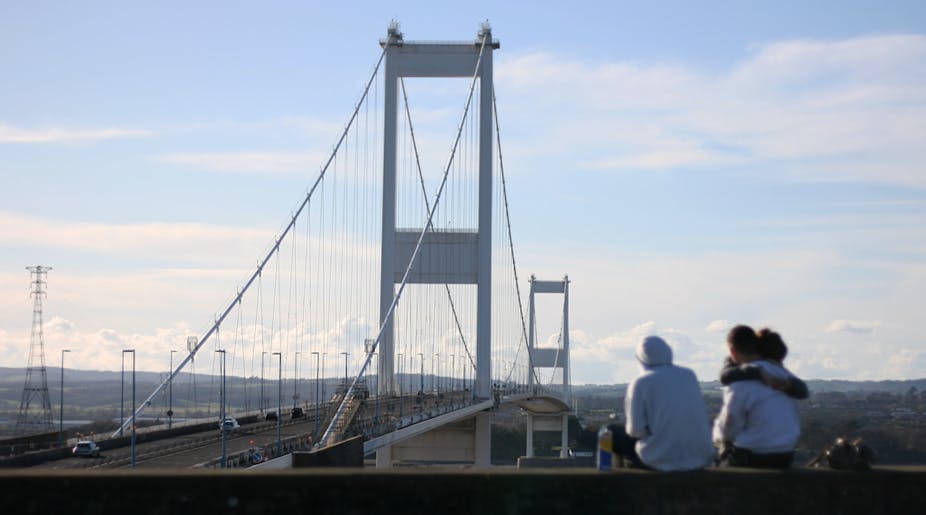New tax-and-spend powers mean the Welsh government will soon have some serious money to play with. The usual advice to the newly rich is to not spend it all at once, but in this case that already appears to be too late. The government has announced it plans to borrow £500m – the entirety of its new borrowing powers – to help fund a new £1 billion seven-and-a-half mile relief road for the M4 motorway, the main arterial road into and out of Wales.
Such a major investment in a single project isn’t necessarily bad, of course, if it is the right project. But this decision, which has seen significant division across the political spectrum in Wales, with opposition parties walking out of budget negotiations (Labour relies on opposition support to pass its annual budget) and threats of legal action about the route chosen, tells us a lot about how the Welsh government plans to use its greater powers, and what its economic priorities appear to be.
The business community in Wales is equally divided, with big businesses groups such as the CBI welcoming the decision and the Federation of Small Businesses calling for a significantly cheaper alternative route.

The decision to build the motorway locks Wales into an economic model predicated on attempting to secure major investment from big businesses in the UK and abroad. The Welsh business minister sees major infrastructural projects as critical to attracting such investment.
A recent report by UK Trade and Investment showed that during the past year, 79 foreign companies had invested in Wales, the highest level for 24 years. The same report, however, shows that 656 foreign companies invested in London alone during the last year. Despite growing numbers of foreign investments in Wales, the gap with London continues to grow significantly.
In putting all its eggs in the foreign investment basket, the Welsh government appears to be wedded to the same dominant economic paradigm which has characterised all UK governments since the 1970’s abandonment of Keynesianism.
Peripheral problems
Regions on the European periphery, like Wales, have disproportionately been disadvantaged by this economic approach. The levels of child poverty in Wales, and other similarly disadvantaged areas of the UK, have risen from 10% in the late 1960s, to 33% today. My own work looking at the South Wales town of Tredegar has shown how the skills and employment base of post-industrial communities has seen a steady decline during the era of neo-liberal dominance.
Researchers at Manchester University’s Centre for Research on Socio-Cultural Change (CRESC), have published a manifesto for what they call the “Foundational Economy”, which is where they argue around 10m people in the UK are employed in the mundane, but essential goods and services sectors such as utilities, food, health, education and welfare.
Economists and politicians tend to frame economic discussions within neo-liberalism: prioritising “competitiveness”, “efficiency”, “market forces” and so on. The M4 relief road has to been seen within this context. That the Welsh government is genuinely committed to tackling poverty through creating further jobs is not in question; employment and skills and education are at the heart of its comprehensive anti-poverty strategy.
But for this to pay off, wealth would have to then trickle down into Wales’ poorest communities and the government appears to be committing itself to an emphasis on securing investment from outside the region as the principle means of creating jobs. In so doing, it risks missing the development of its own local “foundational economies” in Welsh communities. Why grow your local economy in a sustainable manner when you could just attract multinationals and create 2726 new jobs instead?
Global financial capital is highly mobile, however, and Wales is significantly disadvantaged in relation to London and the South-East with regard to high tech and knowledge-intensive investment into the UK. It is also significantly disadvantaged in relation to the developing world with regard to low-skill, low-wage investment, to which much of Wales’ manufacturing based has already migrated.
Wales cannot afford to ignore the fact it is intricately connected to the UK, European and global economies, but it cannot also ignore the opportunities that could arise from developing its own local economies.
The M4 relief road is intended as a shortcut around the city of Newport. It may yet be an unsuccessful shortcut to a better economy.

